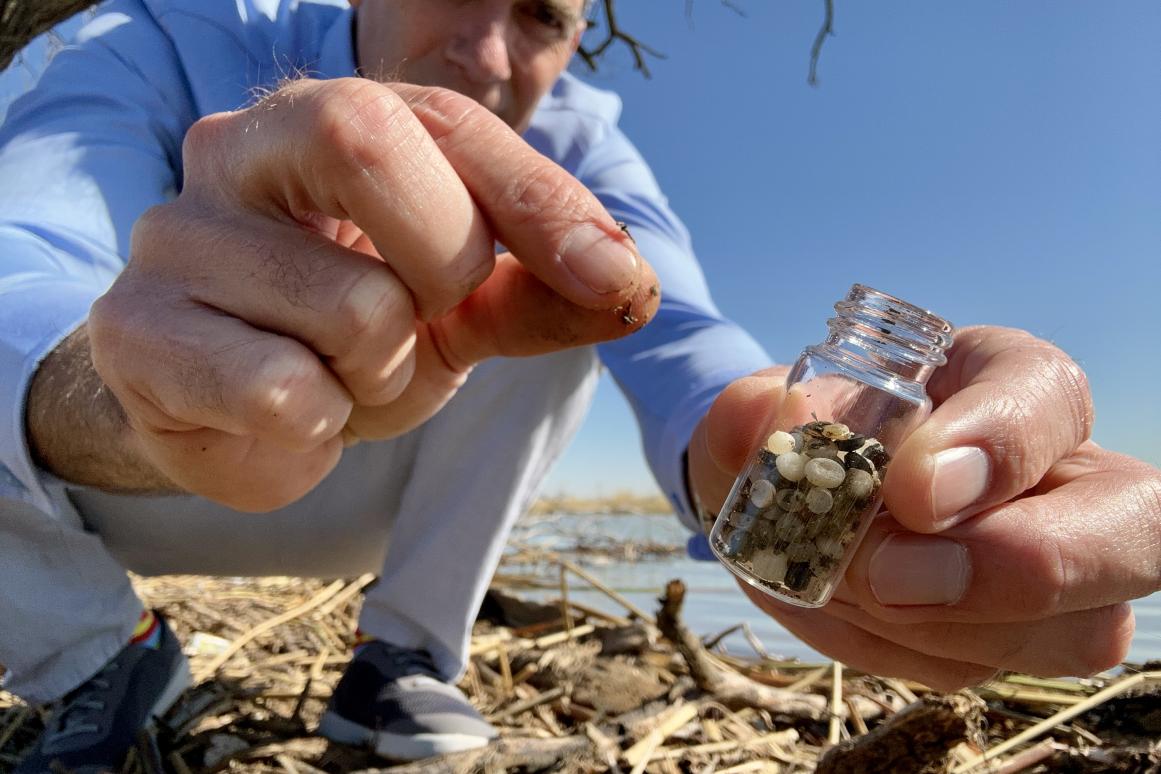Nurdle Patrol Funding Extended as Partnership with Texas A&M-CC, HRI Finalized

CORPUS CHRISTI, Texas — Nurdle Patrol began in September 2018 when a nurdle, or plastic pellet, spill was found on the beaches of Corpus Christi on the Texas coast. There was no designated group for cleanup, impact monitoring, or addressing accountability for plastics entering the ocean.
Within a week, five volunteers began counting plastic pellets on Corpus Christi beaches, calling themselves “Nurdle Patrollers.” Their efforts quickly gained traction, leading to the creation of a Facebook page and, within three weeks, more than 300 volunteers across five Gulf states and Mexico. As interest grew, they launched NurdlePatrol.org to automate data collection and map survey results in real time.
Fast forward to 2025 and Nurdle Patrol has more than 11,000 volunteers around the world, conducting surveys in more than 30 countries, with over 25,000 surveys performed. Those surveys allow Nurdle Patrol to see a bigger picture of microplastics along the coast.
The citizen science program continues to grow, recently receiving a $750,000 grant from the Matagorda Bay Mitigation Trust to the Harte Research Institute at Texas A&M University-Corpus Christi for its ongoing management.
“These funds will go a long way in helping to educate communities about plastics in the environment, showing where high concentrations of pellets are being found, and providing data for organizations to draft new policies to prevent plastics from reaching our waterways so that the next generation isn't burdened with this type of harmful pollution,” said Jace Tunnell, HRI’s Director of Community Engagement, and founder and coordinator of Nurdle Patrol.
Partners for Nurdle Patrol and its efforts include the Matagorda Bay Mitigation Trust, NOAA Marine Debris Program, Coastal Bend Bays & Estuaries Program, 11th Hour Racing, Mission-Aransas National Estuarine Research Reserve at the University of Texas Marine Science Institute, and Texans for Clean Water. Also, the Conrad Blucher Institute at Texas A&M University-Corpus Christi developed and maintains the website and app that makes NurdlePatrol.org possible.
“The surveys revealed nurdle pollution is not limited to a single company but is a widespread issue across the entire industry,” Tunnell said. “Birds, sea turtles, and fish are the primary organisms impacted by the pollution, with decades of research showing these negative impacts. Based on data collected through NurdlePatrol.org, the highest concentrations of plastic pellets found include those areas around plastic manufacturing facilities, and in areas around major spills. Pellets have been found on beaches, rivers, lakes, railroads, and plastic industry fence lines.”
Nurdle Patrol has distributed more than 2,300 teacher nurdle kits that have educated more than 138,000 students about plastics reaching the ocean. There is a mobile app, a nurdle video game called “Nurdle Rush”, and a multitude of microplastics research projects that have stemmed from the Nurdle Patrol effort.
Nurdle Patrol works with 450 partners from around the world to help increase its impact. Plus, some exciting new things are coming, including a revamped website, incorporating Artificial Intelligence into the mobile app, enhancing videos and teacher curriculum.
“The goal is to bring plastic pellet pollution to the forefront of the public and policy makers so the next nurdle spill that occurs has action for cleanup, monitoring, and a way to make our economy clean as well as the places we like to live, work, and play,” Tunnell said.
Nurdle Patrol is one aspect of Tunnell’s work at HRI. Tunnell works with multiple partners to further habitat protection and education of oceans and promote conservation of natural places through his Beachcombing program that appears on YouTube and other social media platforms to educate about the importance of the Gulf.

